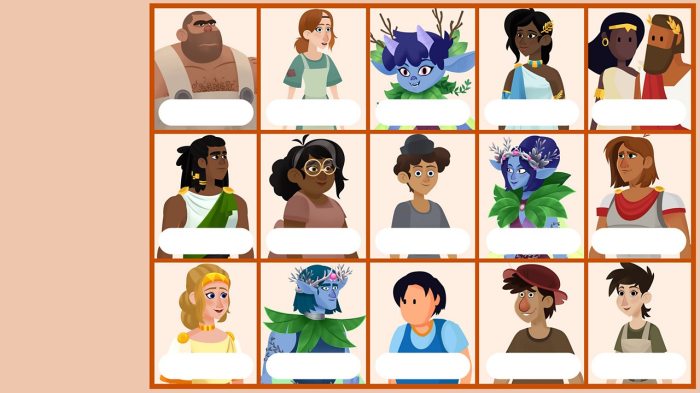Titania monologue midsummer night’s dream – Titania’s monologue in Shakespeare’s “A Midsummer Night’s Dream” stands as a captivating and intricate piece of literature, offering a profound exploration of love, power, and the natural world. Through its rich imagery, eloquent language, and dramatic structure, this speech provides insights into the play’s central themes and conflicts.
This monologue delves into the complexities of Titania’s character, her motivations, and her relationship with Oberon. It examines the rhetorical devices employed by Shakespeare, such as metaphors, similes, and personification, and analyzes their impact on the emotional impact and meaning of her speech.
Titania’s Character and Motivation

Titania, Queen of the Fairies, is a powerful and capricious character who plays a pivotal role in A Midsummer Night’s Dream. Her relationship with Oberon, the King of the Fairies, is strained, and she often acts in defiance of his authority. Titania’s primary motivation is her desire to possess the changeling boy, a child who has been stolen from his parents by Oberon.
Titania’s Character
Titania is a complex and multifaceted character. She is both powerful and vulnerable, compassionate and cruel. She is capable of great love and great anger. Her desire for the changeling boy is driven by both her maternal instincts and her need for control.
Titania’s Motivations
Titania’s motivations are complex and often contradictory. She desires the changeling boy because she believes that he will be a source of joy and companionship. However, she also recognizes that possessing him will give her power over Oberon. Ultimately, Titania’s actions are driven by her desire for love and control.
Thematic Significance of Titania’s Monologue
Titania’s monologue explores the themes of love, power, and nature that are central to A Midsummer Night’s Dream. Her speech reflects the play’s larger themes of love’s transformative power, the fragility of relationships, and the conflict between the natural and supernatural worlds.
Love
Titania’s monologue is a passionate declaration of love for the changeling boy. She describes him in glowing terms, comparing him to a flower, a bird, and a precious jewel. Her love for him is so strong that she is willing to defy Oberon and risk her own safety to keep him.
Power
Titania’s monologue also explores the theme of power. She is a powerful fairy queen, but she is also subject to the whims of Oberon. Her desire for the changeling boy is a way for her to assert her independence and power.
However, her actions ultimately lead to her downfall.
Nature
Titania’s monologue is full of references to the natural world. She describes the changeling boy in terms of flowers, birds, and animals. This imagery reflects the play’s larger theme of the connection between the natural and supernatural worlds.
Rhetorical Devices and Language: Titania Monologue Midsummer Night’s Dream

Titania’s monologue is a masterpiece of rhetoric. She uses a variety of rhetorical devices to create a powerful and moving speech. These devices include:
Metaphors, Titania monologue midsummer night’s dream
Titania uses metaphors to compare the changeling boy to a variety of objects, including a flower, a bird, and a precious jewel. These metaphors create a vivid and memorable image of the boy in the reader’s mind.
Similes
Titania also uses similes to compare the changeling boy to other things. For example, she says that he is “as fair as a summer’s day” and “as sweet as honey.” These similes help to create a positive and appealing image of the boy.
Personification
Titania uses personification to give human qualities to the changeling boy. For example, she says that he “smiles” and “laughs.” This personification helps to create a sense of intimacy between Titania and the boy.
Historical and Cultural Context
Titania’s monologue must be understood in its historical and cultural context. The play was written during the Elizabethan era, a time of great social and political change. The play’s themes of love, power, and nature reflect the concerns of the Elizabethan audience.
Elizabethan Beliefs
Elizabethan audiences believed in the power of fairies and other supernatural beings. They also believed in the importance of love and marriage. Titania’s monologue reflects these Elizabethan beliefs.
Shakespeare’s Beliefs
Shakespeare’s own beliefs also influenced the content and tone of Titania’s monologue. Shakespeare was a humanist who believed in the power of love and the importance of nature. These beliefs are reflected in Titania’s speech.
Dramatic Structure and Impact
Titania’s monologue is a key moment in A Midsummer Night’s Dream. It occurs at the end of Act II, just before the play’s climax. The monologue serves several important functions:
Development of Characters
The monologue reveals Titania’s true character. It shows her to be a passionate, loving, and determined woman. The monologue also helps to develop Oberon’s character. It shows him to be a jealous and manipulative king.
Plot Development
The monologue sets in motion the events that lead to the play’s climax. Titania’s defiance of Oberon leads to a battle between the fairies. The battle is eventually resolved, but the conflict between Titania and Oberon continues throughout the play.
Overall Narrative Arc
The monologue is a turning point in the play’s narrative arc. It marks the beginning of the play’s conflict and sets the stage for the resolution that occurs at the end of the play.
Comparative Analysis

Titania’s monologue can be compared to other famous monologues in literature and theater. For example, it can be compared to Hamlet’s “To be or not to be” monologue or to Lady Macbeth’s “Out, damned spot!” monologue.
Similarities
Titania’s monologue shares several similarities with other famous monologues. For example, it is a passionate and moving speech that reveals the character’s inner thoughts and feelings. It also uses a variety of rhetorical devices to create a powerful and memorable impact.
Differences
Titania’s monologue also has some unique features that distinguish it from other famous monologues. For example, it is spoken by a female character, which is relatively rare in Elizabethan drama. It also focuses on the theme of love, which is not a common theme in tragic monologues.
Performance Considerations
Titania’s monologue is a challenging speech to perform. It requires the actor to convey a wide range of emotions, including love, anger, and defiance. The actor must also be able to use their voice and body to create a sense of magic and wonder.
Challenges
One of the challenges of performing Titania’s monologue is the length of the speech. The monologue is over 100 lines long, and it can be difficult for actors to maintain their energy and focus throughout the entire speech.
Opportunities
Despite the challenges, Titania’s monologue also offers actors a great opportunity to showcase their skills. The monologue is full of beautiful language and powerful emotions, and it can be a very rewarding experience for actors to perform.
Visual and Artistic Representations
Titania’s monologue has been the subject of numerous visual and artistic representations. For example, it has been illustrated by artists such as Arthur Rackham and Edmund Dulac. It has also been adapted for film and television.
Paintings
Arthur Rackham’s painting of Titania’s monologue is one of the most famous depictions of the scene. The painting shows Titania sitting on a throne, surrounded by fairies. She is holding the changeling boy in her arms, and she is looking at him with love and adoration.
Film Adaptations
Titania’s monologue has been adapted for film several times. One of the most famous adaptations is the 1935 film A Midsummer Night’s Dream, directed by Max Reinhardt. In this film, Titania is played by Olivia de Havilland. Her performance is both passionate and moving, and she captures the character’s love for the changeling boy.
Frequently Asked Questions
What is the significance of Titania’s desire for the changeling boy?
Titania’s desire for the changeling boy reflects her longing for love and connection, as well as her defiance against Oberon’s authority.
How does Titania’s monologue contribute to the play’s exploration of nature?
Titania’s monologue celebrates the beauty and power of nature, while also highlighting the potential for chaos and disruption within the natural world.